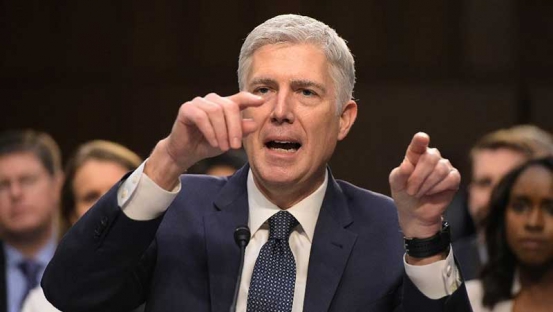×
The Standard e-Paper
Smart Minds Choose Us

US Republicans swatted away decades of tradition Thursday by changing Senate rules to ensure Neil Gorsuch's confirmation to the Supreme Court, bypassing the first-ever successful opposition block on a high-court nominee.
President Donald Trump's pick, embraced by conservatives but opposed by most Democrats, failed to receive the 60 votes necessary to end debate on his nomination and move to a simple majority confirmation vote in the 100-seat Senate.